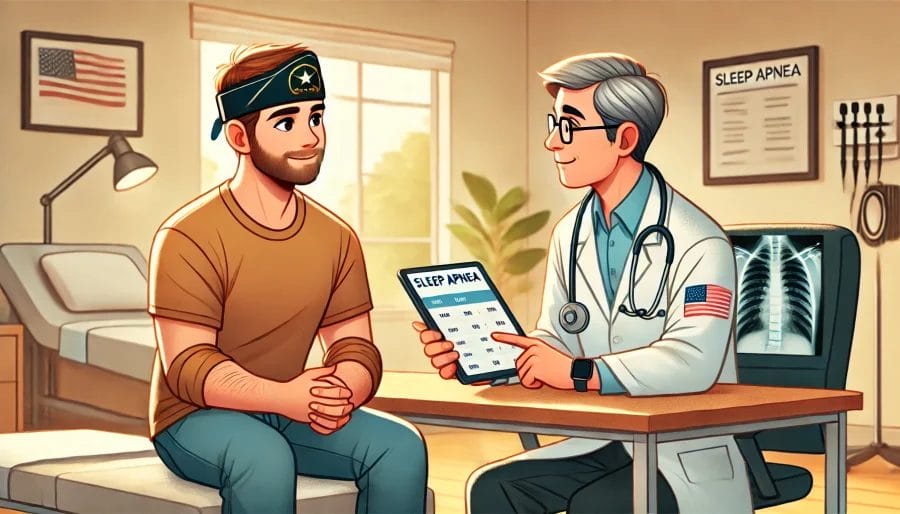Navigating the Department of Veterans Affairs (VA) disability claims process can be complex, especially when seeking additional benefits through a VA Supplemental Claim.
Understanding the VA Supplemental Claim success rate is crucial for veterans aiming to secure the compensation they deserve. This guide explores the VA Supplemental Claim success rate, the factors that influence it, and strategies to improve your chances of approval.
What Is a VA Supplemental Claim?
A VA Supplemental Claim allows veterans to provide new and relevant evidence to support an existing claim for disability benefits. This pathway is designed to streamline the appeals process by enabling veterans to submit additional information without starting from scratch.
When to Use a Supplemental Claim
- New Evidence: When you have new medical records, statements, or other documentation that was not previously considered.
- Changed Conditions: If your disability has worsened since your last decision.
- Clarifications: To clarify or expand on information provided in your initial claim.
Benefits of a Supplemental Claim
- Faster Processing: Generally quicker than original claims or appeals.
- Higher Approval Rates: Supplemental claims often have higher success rates compared to initial claims.
- Convenient Submission: Can be filed online through the VA Claims portal.
AI Powered Chatbot for VA Disability Claims
Learn more about the VA Disability process and get help with our VA Disability Claim Chatbot programmed and trained by AI

VA Supplemental Claim Success Rate
Overall Success Statistics
As of October 2023, VA Supplemental Claims have demonstrated a significantly higher success rate compared to initial claims and other appeal options. While exact percentages can vary annually, general trends indicate:
- Approval Rates: Approximately 60-70% of Supplemental Claims are approved, depending on the quality and relevance of the new evidence provided.
- Comparison to Other Appeals: Supplemental Claims typically outperform Higher-Level Reviews and Appeals through the Board of Veterans’ Appeals in terms of approval rates and processing speed. Though the data and support must be there.
Factors Influencing Success Rates
Several factors can affect the likelihood of a Supplemental Claim being approved:
- Quality of New Evidence:
- Relevance: The new evidence must directly support your claim and demonstrate why your condition warrants additional benefits.
- Credibility: Documentation from reputable sources, such as medical professionals, enhances credibility.
- Timeliness:
- Recent Evidence: Submitting the most recent and up-to-date evidence increases the chances of approval.
- Prompt Response: Responding quickly to any VA requests for additional information can prevent delays or denials.
- Clear Connection to Service:
- Service Connection: Clearly establishing how your disability is connected to your military service is crucial.
- Medical Nexus Letters: A strong nexus letter linking your condition to service can significantly bolster your claim.
- Comprehensive Documentation:
- Complete Records: Providing thorough and complete medical records, treatment history, and personal statements can enhance your claim’s strength.
- Organized Submission: Well-organized and clearly presented evidence is easier for VA adjudicators to review.
- Representation:
- VSO Assistance: Veterans Service Officers (VSOs) or accredited representatives can help ensure your claim is well-prepared and all necessary documentation is included.

How to Improve Your VA Supplemental Claim Success Rate
A VA supplemental claim success rate is highly dependent on evidence — you need the data to back up your claim. Make sure you’re always getting copies of medical records for your personal record library. Make sure you’re continuing to go to the physician / care provider as needed for your malady. This can help bolster your claim over time if needed.
1. Gather Comprehensive New Evidence
- Medical Records: Obtain recent medical records that document your condition’s severity and any changes since your last claim.
- Statements: Include personal statements detailing how your disability affects your daily life and work.
- Nexus Letters: Secure a nexus letter from a qualified medical professional that clearly links your condition to your military service.
2. Ensure Relevance and Quality of Evidence
- Targeted Documentation: Provide evidence that directly supports the specific aspects of your disability claim.
- Professional Reports: Utilize reports from specialists who have treated your condition to add weight to your evidence.
3. Maintain Accurate and Updated Contact Information
- Current Information: Ensure the VA has your latest contact details to avoid your claim being marked as “Unable to Contact (UTC).”
- Responsive Communication: Promptly respond to any VA correspondence to keep your claim moving forward.
4. Utilize the VA’s Online Resources
- VA Portal: Use the Claim portal to submit your Supplemental Claim efficiently.
- VA Forms: Familiarize yourself with and accurately complete the necessary VA forms for Supplemental Claims.
5. Seek Professional Assistance
- Veterans Service Officers (VSOs): VSOs can provide invaluable assistance in preparing and submitting your Supplemental Claim.
- Accredited Representatives: Utilize the Find a VA-Accredited Representative tool to locate professionals who can advocate on your behalf.
6. Follow Up Regularly
- Check Claim Status: Regularly monitor the status of your Supplemental Claim through the VA’s online tools.
- Provide Additional Information: If the VA requests more information, provide it promptly to avoid delays or denials.
Common Mistakes to Avoid
Evidence is key in affecting a VA claim success rate.
- Incomplete Evidence: Failing to provide all necessary documentation can weaken your claim.
- Weak Nexus Letters: Ensure that your nexus letter clearly and convincingly links your disability to your service.
- Delayed Responses: Not responding promptly to VA requests can result in your claim being denied or delayed.
- Poor Organization: Disorganized or unclear submissions can make it difficult for VA adjudicators to assess your claim effectively.
Additional Resources
- VA Disability Calculator
- How to File a VA Disability Claim
- Title 38 CFR Chapter I Part 4
- Find a VA-Accredited Representative
- VA Claim Exam
- What Is a VA Nexus Letter and How to Get One
- Understanding Pyramiding
